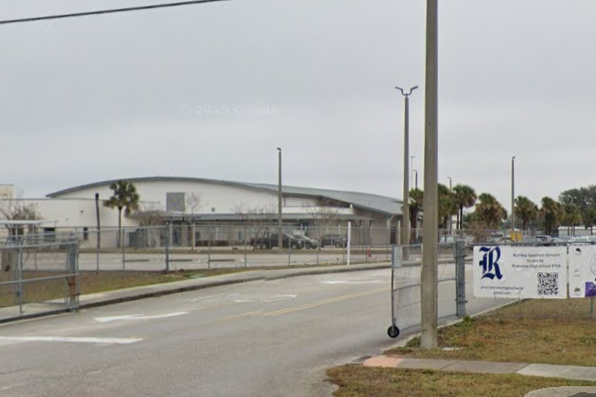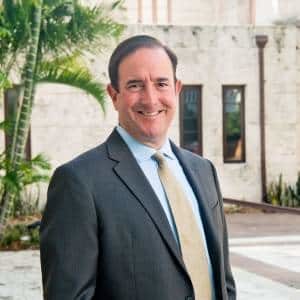
Brooke Anderson, a 27-year-old science teacher at Riverview High School located at 11311 Boyette Rd, Riverview, FL 33569, has been arrested and charged with three counts of unlawful sexual activity with a minor. Authorities allege that Anderson engaged in a months-long sexual relationship with a male student, culminating in an incident on May 16, just prior to the start of the school day, according to Fox 13 Tampa Bay.
The Hillsborough County Sheriff's Office launched an investigation after receiving reports of an inappropriate relationship between Anderson and the student. According to a statement from the Sheriff's Office, the student revealed that their interactions began in September 2024 with sexually explicit messages, which escalated into "multiple instances of sexual activity" in the months that followed.
Anderson was taken into custody two weeks ago and subsequently released on bail set at $45,000—$15,000 for each charge. Jail records confirm her release, while Riverview High School's faculty directory has removed Anderson's name from its listings. School officials have since suspended her, with termination proceedings underway.
The school district emphasized that Anderson had passed all required background checks and screenings prior to her hiring. However, officials are now reviewing hiring and monitoring practices to ensure such breaches do not recur.
Sheriff Chad Chronister condemned Anderson's actions, stating, "This teacher betrayed the trust of a student, a school, and an entire community. What should have been a safe, supportive environment for learning was exploited for abuse. Her actions are criminal, calculated, and deeply disturbing."
The Sheriff's Office has urged anyone with additional information or concerns about similar incidents to come forward, stressing the importance of protecting students and ensuring accountability.
This case adds to a troubling trend across the United States involving inappropriate teacher-student relationships. Reports indicate hundreds of such cases have emerged in recent years, fueled in part by social media enabling easier communication and the erosion of professional boundaries. Concerns have also been raised about gaps in screening processes and inadequate training on ethical guidelines for educators.
The investigation into Anderson’s actions is ongoing, with law enforcement and school officials promising a thorough review of all evidence. For the Riverview High School community, the incident has left a lasting impact, raising questions about trust, oversight, and the measures needed to prevent abuse in educational settings.

When allegations surface involving a high school teacher abusing a student, the impact reaches far beyond the initial arrest. Victims are often left grappling with emotional trauma, while families seek answers and accountability. Attorney Michael Haggard, a Florida-based expert in sexual abuse cases, explains the legal pathways available for holding abusers and negligent institutions responsible. In this conversation, he offers practical guidance for victims and their families navigating the complexities of such cases.
Editor Darla Medina (DM): Thank you for joining us, Mr. Haggard. Cases like the one involving Brooke Anderson raise questions about what legal steps victims can take. What options are available for students who have experienced abuse by a teacher?
Attorney Michael Haggard (MH): Thank you for having me, Darla. Victims of abuse by authority figures, like teachers, have both criminal and civil avenues to consider. On the criminal side, law enforcement investigates and prosecutes the perpetrator. However, victims can also file civil lawsuits against not only the abuser but potentially the school district if negligence played a role—such as failing to monitor interactions or ignoring warning signs.
DM: When you say negligence, what might that look like in a case like this?
MH: Negligence can take many forms. For example, if a school failed to act on complaints from students or parents, or if it didn’t have proper safeguards in place to monitor teacher behavior, it could be held accountable. Even background checks and hiring practices come into play. If someone with a history of misconduct was hired or retained, that’s a serious issue.
DM: What kind of compensation might victims seek through a civil case?
MH: Victims can seek compensation for a range of damages, including emotional distress, therapy expenses, and other impacts on their lives. In some cases, punitive damages may also be awarded to hold institutions accountable and prevent future misconduct.
DM: How important is it for victims to come forward?
MH: It’s incredibly important, not just for their own healing but also to ensure accountability. Reporting helps prevent similar incidents from happening to others and allows authorities to investigate. Victims should know they’re not alone and that there are resources and professionals ready to help them navigate this process.
If your family has been affected by a case of sexual abuse involving a high school teacher, know that you don’t have to face this alone. Legal options are available to help you seek accountability and support your loved one’s healing. Contact us today for a free and confidential consultation to discuss how we can assist in pursuing justice and protecting your rights.
 info@legalherald.com
info@legalherald.com